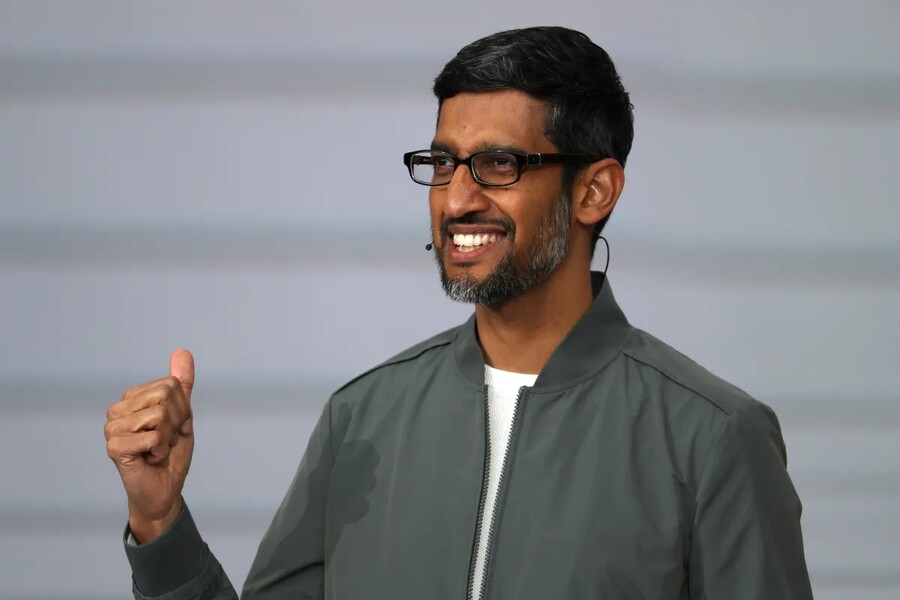In a stunning turn of events, OpenAI’s $3 billion acquisition deal for the highly sought-after AI coding startup, Windsurf, collapsed on Friday. The viral AI firm, known for its rapid growth and innovative technology, has instead caught the attention of tech giant Google, which has hired Windsurf’s CEO Varun Mohan, co-founder Douglas Chen, and some of the startup’s top researchers.
A Google spokesperson confirmed the news to TechCrunch, revealing that while Google would not acquire Windsurf outright, the company has secured a nonexclusive license to some of Windsurf’s cutting-edge technology. The deal is reportedly worth $2.4 billion, which includes both the licensing of the startup’s AI coding tools and the hiring of key personnel. Despite this, Google will not be taking a stake in Windsurf, meaning the company remains independent and can still license its technology to other entities.
This strategic move is being referred to as a “reverse-acquihire,” where large tech firms such as Google and Microsoft have hired key staff from startups without acquiring the companies themselves. These moves allow Big Tech firms to bolster their AI capabilities while avoiding the regulatory scrutiny typically associated with large acquisitions. Previously, Google conducted a similar deal with Character.AI CEO Noam Shazeer, while Microsoft did the same with Mustafa Suleyman.
Google DeepMind Welcomes Top AI Coding Talent
Google’s decision to hire Windsurf’s top executives comes at a time when the company is doubling down on AI innovation, particularly in the realm of agentic coding—AI systems that can autonomously generate and debug code. “We’re excited to welcome some top AI coding talent from Windsurf’s team to Google DeepMind to advance our work in agentic coding,” said Chris Pappas, a Google spokesperson, in a statement to TechCrunch.
Mohan and Chen expressed their enthusiasm for joining Google DeepMind, noting that they were proud of the work Windsurf had accomplished over the past four years. “We are excited to see it move forward with their world-class team and kick-start the next phase,” they said in a joint statement.
Windsurf’s Future Uncertainty
Despite the high-profile hires, most of Windsurf’s 250-person workforce will not be joining Google. The company’s new interim CEO, Jeff Wang, who previously headed business development, announced on social media that Windsurf would continue to offer its AI coding tools to enterprise customers. The fallout from OpenAI’s acquisition attempt has raised questions about Windsurf’s future. While the company had been one of the hottest startups in AI, its sudden shift in leadership and strategic direction may cause it to lose the momentum it gained over the last few months.
Windsurf’s impressive growth has been hard to ignore. In April, the company reported an annual recurring revenue (ARR) of about $100 million, more than doubling from $40 million earlier in the year. This rapid expansion attracted the attention of major players like OpenAI and Google. However, as OpenAI’s contract renegotiations with Microsoft have shown, there were complications in trying to integrate Windsurf’s technology into the broader ecosystem, with Microsoft’s exclusive access to OpenAI’s intellectual property playing a significant role in the deal falling apart.
The Ripple Effect in the AI Startup Ecosystem
The Windsurf saga also underscores the increasing competition among AI startups to attract the attention of Big Tech firms. Similar reverse-acquihire deals have been pivotal in helping companies like Anthropic, OpenAI, and now Google enhance their AI coding capabilities. However, AI startups that lose their key leadership or undergo significant changes often struggle to maintain their previous momentum. For instance, Scale AI lost customers following its acquisition by Meta, while Inflection had to pivot away from consumer AI after being acquired by Microsoft.
It remains to be seen whether Windsurf will be able to keep up its growth trajectory amid these leadership changes and the ongoing competition in the AI field.
Conclusion
While Google’s deal with Windsurf provides a major boost to its AI ambitions, the future of Windsurf as an independent entity is now in question. With top talent leaving and the company no longer bound by OpenAI’s exclusivity, Windsurf faces an uncertain road ahead. Its ability to continue to innovate and compete in the fast-evolving AI space will be closely watched in the coming months.
As of now, it appears that the AI ecosystem’s complex web of deals, acquisitions, and talent moves will continue to evolve, with companies like Google DeepMind and OpenAI vying for dominance in the rapidly growing field of AI coding technology.


